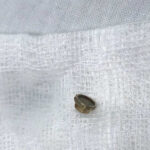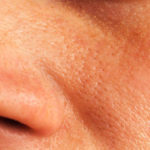According to the medical website WebMD, one of the most common scenarios for small insects to crawl into your ear is when the victim is asleep, causing quite an uncomfortable reaction.
If the insect is still alive, it will likely try to escape by flying or crawling around in your ear. You may hear buzzing or feel movement inside your ear during this process.
Some insects, like beetles or bed bugs, may bite or sting you as they attempt to get out. These bites or stings can be painful and itchy.

Quick fixes for when an insect crawls into your ear.
On the other hand, a dead insect will not cause the same level of discomfort as a live one. However, it can still block your ear canal, leading to reduced hearing ability.
There have also been cases where insects get stuck in the ear without causing pain. The victim might experience muffled hearing or a ringing sensation without realizing the cause.
Therefore, the best way to prevent insect remains from getting stuck in your ear is to practice good ear hygiene and regularly clean your ears while showering. If you experience continuous ear pain or muffled hearing for 24 hours, it is advisable to seek medical attention at the nearest healthcare facility.

In the event of a live insect crawling into your ear, it is crucial to remain calm and follow appropriate responses.
If a live insect unexpectedly crawls into your ear, it is essential to stay calm and respond appropriately. Specifically, try shaking and tilting your head to one side. These movements may allow the insect to fly or crawl out.
Refrain from hitting your head or ear, as this could startle the insect and cause it to burrow deeper. Additionally, do not use cotton swabs to remove the insect, as this could also push it further into your ear, posing a risk to your middle ear and eardrum.
Source: Nguoi Dua Tin
The Dangers of Sleeping With Earphones: A Narrow Escape From Ruptured Eardrums
Immerse yourself in a captivating auditory experience with headphones, the ultimate tool for audio enthusiasts. They offer a sanctuary of pristine sound, shielding you from the chaotic noise of the outside world. However, it’s important to remember that there are risks associated with excessive use; your eardrums are delicate, and there have been cases of near-perforation from sleeping with headphones on.



































